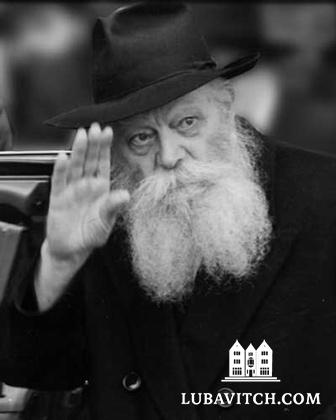The life stories of the righteous are to be found in their achievements . . . (Midrash Rabbah, Genesis)
Biographies on the Lubavitcher Rebbe, Rabbi Menachem M. Schneerson, who passed away on the third day of Tammuz in 1994, are now making appearances in mainstream bookstores.
I’m still waiting for a particular one that has been incubating for years. A prolific author with a rare mind who benefited from more than forty years of personal interaction with the Rebbe, the writer has shelved a first attempt and is working with painstaking diligence on a second, for more than a decade now. The anticipation grows.
I have not asked him why he has taken so long on this work, but would venture that somewhere along the process, he has come uncomfortably close to a humbling recognition: the more he ponders the Rebbe’s life, the greater he discovers is his subject matter and the more inadequate he feels to the task.
Rabbi Adin Steinsaltz is in his 70s, and is possessed of an old-fashioned sobriety that is in short supply these days. He understands basic rules of proportionality that set elegant thinkers and writers apart from clumsy ones. Though a credible biography on the Lubavitcher Rebbe has yet to be produced, and though he knows that he is likely more qualified than most to deliver such a work, he seems unhurried, if uneasy about it.
It seems to me that among his other credentials, his tempered reluctance makes him eminently qualified for the project. This man’s sober sense about the gravitas of his subject would make his biography of the Rebbe, when it is finally done, one worth reading.
In the meantime, there are other books that have come out, and still more in the works. So far they disappoint on many counts, especially in their failure to reconcile the facts of a life of prodigious achievements with the story they tell, and in their inability to apprehend the phenomenon of greatness. If there is any attitude more poorly suited to a study on the life of the Lubavitcher Rebbe, it is cynicism.
It should surprise no one that Chabad Chasidim feel that as regards the Rebbe’s life and teachings, our perspective and our version is the accurate one. It is true of the way most children and students of famous personalities feel, and justifiably so.
But we also know that just as the Rebbe freely interacted with people outside of the Chabad community in his lifetime, he is now, as well, theirs to study and scrutinize. And though we know that they will bring their own, at times disagreeable perspectives, Chabad generally cooperates with researchers and biographers seeking to write about the Rebbe.
But in hazarding something as enormous as a work on the life and afterlife of the Lubavitcher Rebbe—and his life spanned 92 years—it should not be too much to ask that the writers immerse themselves in the study of the Rebbe’s scholarly works which were of an absolute, unified whole with the Rebbe himself.
Nor is it unreasonable to expect biographers to unburden themselves from their cherished cynical convictions, so that they may approach the concept of the tzaddik with some measure of honesty. To resist, as they do, the idea that every once in a while, the world is blessed with an individual of a different spiritual order whose existence will have a profound impact on the lives of many, and will, even in the afterlife, continue to inspire remarkable dedication to a great vision, is to their discredit. One need not “believe” in the idea of the tzaddik to recognize the presence of greatness.
Shortly after the Rebbe passed away, Rabbi Michael Paley, the scholar-in-residence at the Jewish Resource Center of UJA-Federation of New York, and an adjunct professor at the Columbia School of Journalism, wrote this in an editorial column in New York Newsday.
“In my meeting long ago, I felt from the Rebbe what I have rarely felt from most leaders, religious or political: a vibrant passion and a vision of what the world could be. The Rebbe’s presence pierced me and in some strange way, increased the velocity of our interaction. We learn from modern physics that at the ultimate velocity, time stands still and there is only a moment of the present . . . .The followers of the Rebbe have experienced such a moment with their leader . . . . For the followers of the Rebbe, and I include myself from a distance, this is a time of hope against fear, of love in the face of darkness.”
Sixteen years after his passing there are more of us—not fewer—who experience the moment. Every year, a new generation of young men and women, their idealism fired by the Rebbe’s vision of what the world could be, join the ranks of Chabad Shluchim, vying for the opportunity to participate in its realization.
The number of lives that continue to be touched and transformed by a legacy that endures and grows, is countless. The biography that has yet to be told becomes ever more interesting.

Be the first to write a comment.